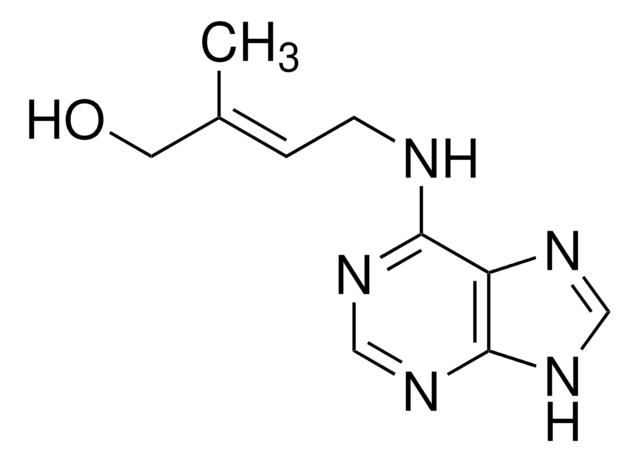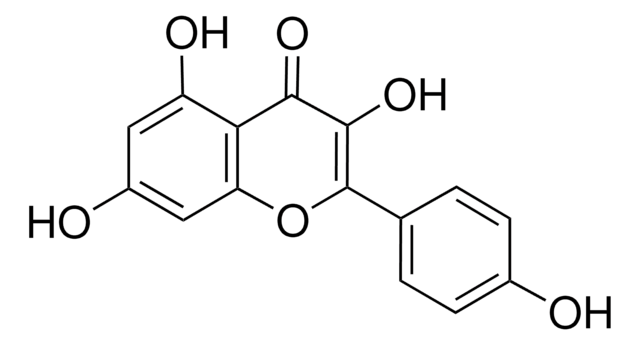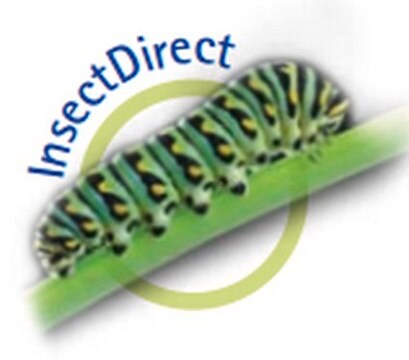SBR00016
Aminopterin Ready Made Solution
50 mg/mL in DMSO
Synonym(s):
(S)-2-{4-[(2,4-Diaminopteridin-6-yl)methylamino]benzamido}pentanedioic acid, 4-Amino-PGA, 4-Aminofolic acid, 4-Aminopteroyl-L-glutamic acid
About This Item
Recommended Products
Assay
≥85%
Quality Level
form
liquid
storage condition
protect from light
concentration
50 mg/mL in DMSO
solubility
DMSO: 50 mg/mL
shipped in
dry ice
storage temp.
−20°C
SMILES string
OC(CC[C@@H](C(O)=O)NC(C1=CC=C(NCC2=NC3=C(N)N=C(N)N=C3N=C2)C=C1)=O)=O
InChI
1S/C19H20N8O5/c20-15-14-16(27-19(21)26-15)23-8-11(24-14)7-22-10-3-1-9(2-4-10)17(30)25-12(18(31)32)5-6-13(28)29/h1-4,8,12,22H,5-7H2,(H,25,30)(H,28,29)(H,31,32)(H4,20,21,23,26,27)
InChI key
TVZGACDUOSZQKY-UHFFFAOYSA-N
Biochem/physiol Actions
Aminopterin is actively transported into cells by the folate transporter. In the cell, it is converted to a high molecular weight polyglutamate metabolite by folylpolyglutamate synthase that, in turn, binds to dihydrofolate reductase and inhibits its activity. Aminopterin-polyglutamate is degraded intracellularly by γ-glutamyl hydrolase.
Aminopterin was first administered for cancer therapy, as a drug targeting metabolism, specifically in pediatric leukemia. Later on it was demonstrated to be more potent yet more toxic than methotrexate.
Signal Word
Danger
Hazard Statements
Precautionary Statements
Hazard Classifications
Acute Tox. 3 Oral - Muta. 2 - Repr. 1B
Storage Class Code
6.1C - Combustible acute toxic Cat.3 / toxic compounds or compounds which causing chronic effects
WGK
WGK 3
Flash Point(F)
188.6 °F
Flash Point(C)
87 °C
Certificates of Analysis (COA)
Search for Certificates of Analysis (COA) by entering the products Lot/Batch Number. Lot and Batch Numbers can be found on a product’s label following the words ‘Lot’ or ‘Batch’.
Already Own This Product?
Find documentation for the products that you have recently purchased in the Document Library.
Articles
This issue of Biofiles reviews some of our newest and most innovative technologies and their specific applications toward cancer research. In preparing this issue of Biofiles, one is reminded how complex the disease of cancer is, and how difficult it is to identify one topic that is completely unrelated to any other.
Our team of scientists has experience in all areas of research including Life Science, Material Science, Chemical Synthesis, Chromatography, Analytical and many others.
Contact Technical Service







